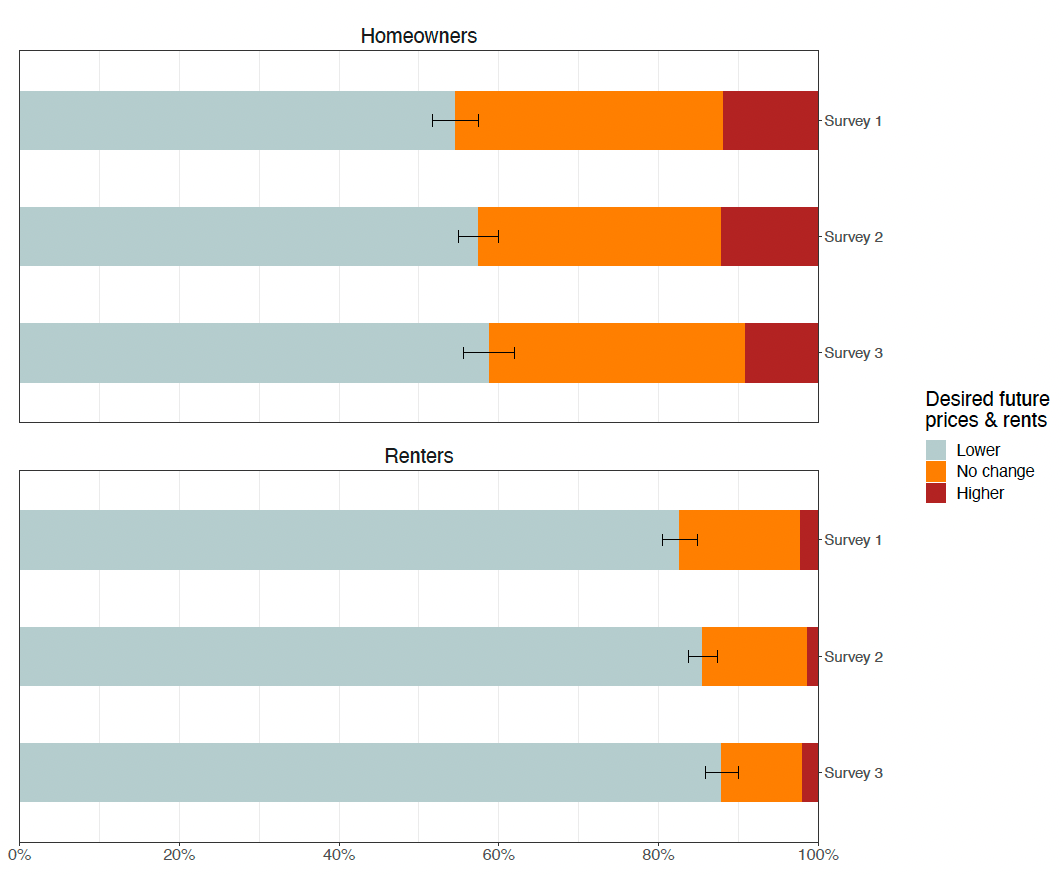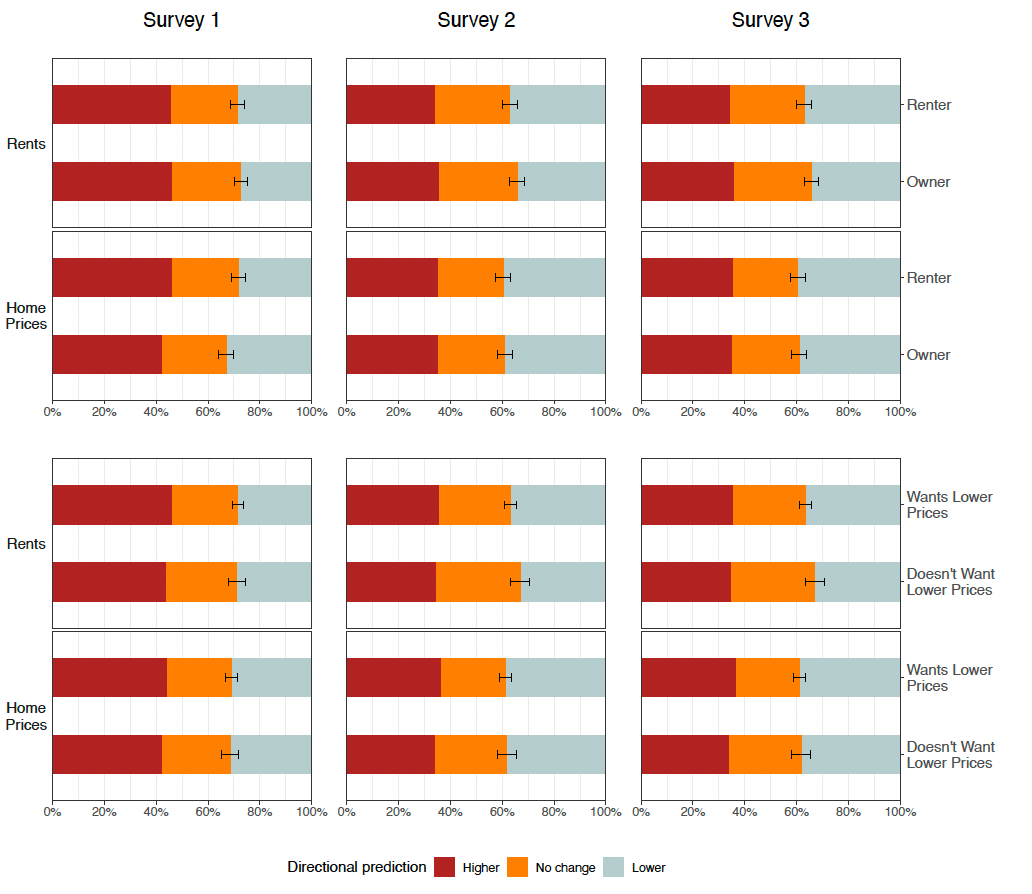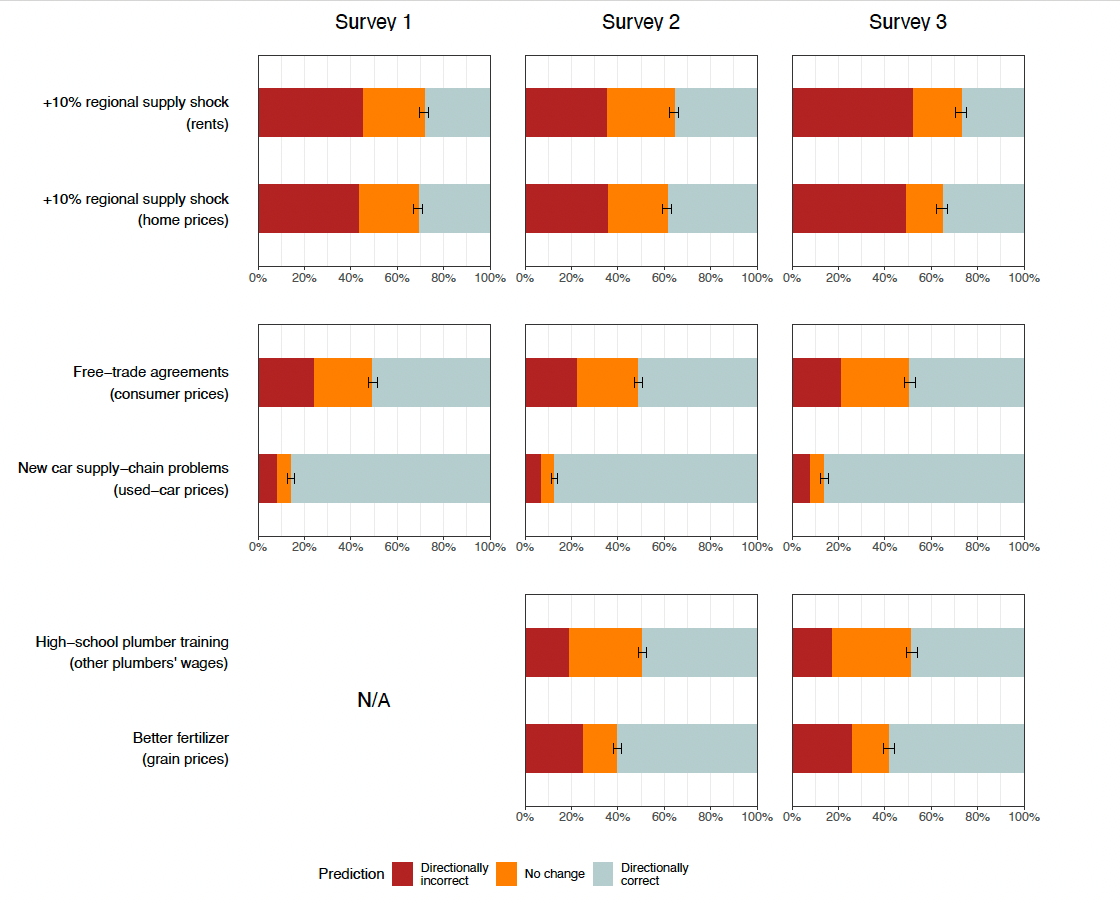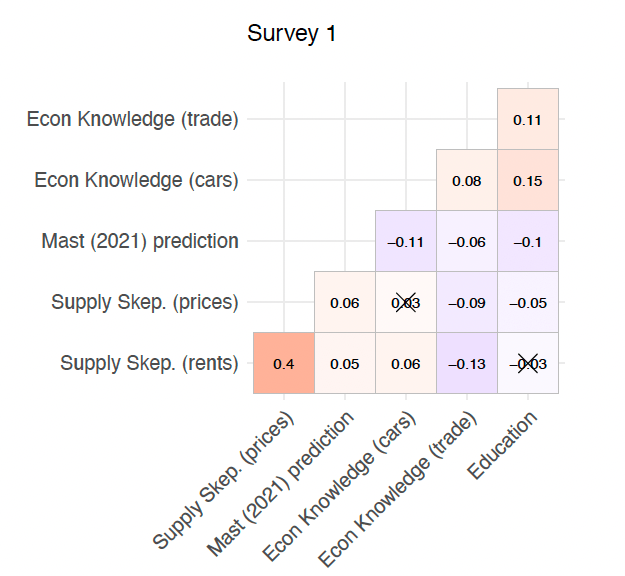Nall et al. (2022)
The economics of Housing & Homelessness
A Class Presentation of
Spatial Collective Action Problem
Homeowners
-
Homeowners seek to protect home values and preserve neighborhood amenities
- Given the local nature of housing development approval, homeowners are incentivized to mobile against local housing development, particularly high-density projects
Renters
-
Favor dense housing development more than homeowners
- Don't mobilize in support of any one housing development because the benefits are diffuse
A Deeper Look at Restricted Development
-
People have "generalized preference for lower housing prices."
-
But locally, they are "sensitive to local externalities like noise and congestion"
-
One hypothesis is that more housing would be developed if the decision making was removed from the local level
"Everyone has a little NIMBY in them. It doesn't have to be the part that wins"
- Jerusalem Demsas
Self-Reported Preferences

55-60%
85%
Self-Reported Preferences on Future Housing Prices
Does Increased Supply Lower Housing Prices?
Survey Results

A 10% Increase in Housing Supply Would Lead to ...

Housing
Non-Housing

Supply Skepticism is relatively uncorrelated with Chain of Moves Predictions
-
fostering the perception that macroeconomic factors and financial markets, rather than supply-side elements like building productivity or land-use restrictions, dominate housing prices
-
People observing new housing developments in high-price areas might mistake correlation for causation